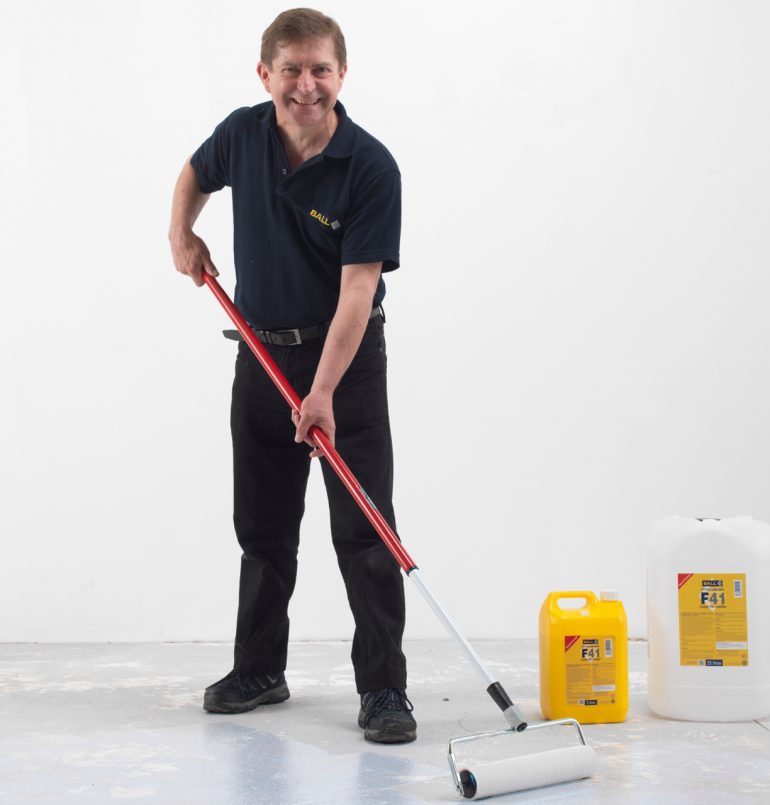“The role of marketing as I see it,” opens Richard, “is about giving customers what they want, when and where they want it, and at a price that’s reasonable to them.
“A large part of being able to achieve this is other departments in the company doing their bit so we’re able to deliver it. From the technical department developing new products and testing them to make sure they’ll work, production manufacturing the products to a schedule that ensures we always have stock available, and warehousing and logistics getting products to our wholesalers the day after they’ve ordered them.
“If we get all of that right, the promotional and communications aspects of marketing are relatively straightforward.”
Richard explains that the marketing team works closely with the technical and production teams to ensure the company is making the products that customers want, based on market intelligence that is obtained through market research, customer and wholesalers feedback and general awareness of the contract flooring industry.
“But there’s a lot of work and effort translating what the market wants into a live product; from creating numerous formulations and undertaking exhaustive testing, it’s essential that products can be made consistently and perform to the standards we’re known for,” Richard continues.
We’re interested to understand if this defines the ‘F. Ball brand’, which Richard refers to on a number of occasions during our interview.
Building trust
“It’s part of it,” agrees Richard, “but it goes a lot deeper than that. F. Ball was the market leader in adhesives when I joined the company, and with a big market share. Much of the reason for that is that customers built up trust in the company over many, many years. They believe that if they buy F. Ball products, they can expect the best level of performance.
“Over the 18 years since I’ve been with the company we’ve introduced a good number of new products and developed a whole new range of levelling compounds, all designed to do very specific jobs that flooring contractors might come across; from dealing with damp, installing flooring over different subfloors and installing hundreds of different floor coverings that might be subject to varying environmental conditions. Every single product needs to be created and tested to ensure it delivers what contractors expect, otherwise the trust they have built up in us could disappear overnight.”
So if it’s all about the product and delivery to wholesalers, do you really need to promote the products at all? That’s the question we posed to Richard and one he was eager to answer: “Well you can have the best products in the world, but if nobody knows about them, they won’t buy them. Also, we rely on wholesalers stocking our products, so contractors can get hold of them when they want them. The last thing a wholesaler wants is stock to be sitting in their warehouses because there’s no demand. So, especially when we launch a new product, it’s important to create widespread awareness. We do this through advertising, public relations, point-of-sale at wholesalers’ branches, direct marketing through electronic newsletters, and more recently, through social media.”
Is the multichannel approach necessary, we ask? “Absolutely,” Richard responds “We need to get our messages to where people are looking. We can’t expect them to seek us out, it’s our job to be where they can see us and create messages that get their attention.”
Proper marketing benefits customers
But Richard is at pains to point out that the company’s marketing isn’t about the ‘hard sell’: “Our role really is to inform, educate and explain. We want to let contractors know that a new product exists, explain what it can do and educate potential users when and where a product should be used and how to get the best out of it. We want customers to be delighted with what they buy, enjoy using it and be happy with the results. We want them to come back and buy it again. They’ll never do that if you make overblown promises and a product fails to live up to those promises. Your credibility would be shattered.”
So if you’ve convinced someone to use your products and they like them, why do you need to keep marketing?
“If you stopped marketing for a short period of time, say a few months, it might not make a big difference, apart from interrupting the continuity and momentum of your marketing activity,” begins Richard, but we can tell there’s a big ‘BUT’ coming up.
“However, over a longer period without marketing, you’d start to suffer. As we’ve said earlier, as new products come out, you need to promote them to customers. Also there are always new people coming into the industry and longstanding ones leaving, so you constantly have introduce new people to your brand, products and expertise. And, then there are your competitors. If you’re not marketing and they are, their messages and presence in the marketplace will start to erode your position.
“Clearly that’s not where we want to be, so we’ll continue with our marketing activity, which has served us pretty well over the years, certainly during my time here.”
As we finish the interview, Richard announces that he’ll soon be planning to hand over the marketing reigns to the next generation of marketers, as he will shortly be retiring from the business. So as a final thought, we ask him to reflect on his time marketing an industry-leading company.
“It’s been a real pleasure,” says Richard. “F. Ball is a great company, with some fantastic products and a really good ethos. Fortunately, we’ve been able to maintain our position in the market during my time here and make inroads into new product areas, which has been pleasing to say the least.”


